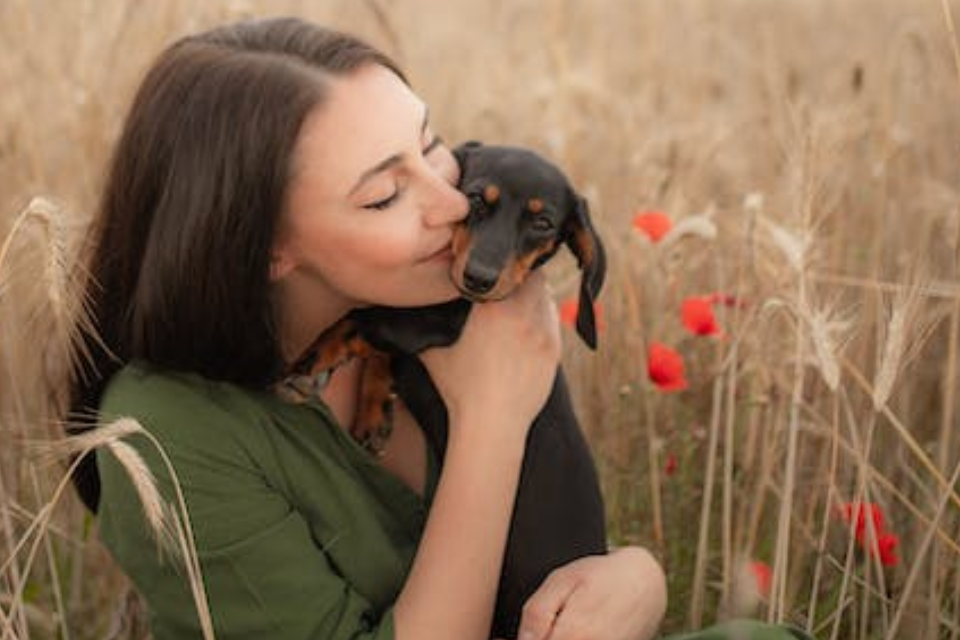Miniature Dachshunds, also known as “Wiener Dogs,” are beloved pets all over the world. These small, long-bodied pups are playful, energetic, and loyal companions. One of the most important things that dog owners want to know is whether their furry friend is affectionate. In this blog post, we’ll dive into the topic of whether Mini Dachshunds are affectionate dogs.
Understanding your dog’s behavior is crucial for building a strong and happy relationship with your pet. A dog’s personality and temperament can greatly impact their level of affection towards their owner. As such, it’s essential to understand the Mini Dachshund’s unique personality traits, such as their playful nature and their tendency to form strong bonds with their owners. We’ll also explore the factors that influence their level of affection, including early socialization and training.
If you’re a Mini Dachshund owner or considering getting one, this post will provide valuable insights into the breed’s affectionate nature. With the right approach, you can help foster a loving and loyal relationship with your Mini Dachshund.
Key Takeaways:
- Mini Dachshunds are affectionate dogs that bond strongly with their owners.
- Factors such as breed traits, socialization, and training can influence their level of affection.
- To foster their affection, provide plenty of attention, playtime, and positive reinforcement training.
Mini dachshunds personality traits
Miniature Dachshunds are known for their charming personality and endearing quirks. They have a distinct temperament that sets them apart from other dog breeds. Understanding their behavioral patterns and social tendencies is crucial to fostering a healthy relationship with your furry friend.
Temperament
Mini Dachshunds are a breed of dog that is full of personality. They are spunky, curious, and independent dogs that love to explore their surroundings. They are also known for being stubborn, which can make training them a bit of a challenge.
Behavioral patterns
Mini Dachshunds have a few unique behavioral patterns that are common to the breed. They are known to be barkers, and they can be quite vocal when they want attention or when they sense something amiss. They also have a strong prey drive, which means that they may chase after small animals or objects.
Social tendencies
Mini Dachshunds are social animals that love to be around their owners. They are affectionate and crave attention from their human companions. They also enjoy playing with other dogs, but they can be territorial and protective of their home and family.
One of the most endearing traits of Mini Dachshunds is their tendency to form strong bonds with their owners. They are fiercely loyal dogs that will do anything to protect their family. They love to cuddle and snuggle with their owners, and they thrive on human interaction.
However, Mini Dachshunds can also be prone to separation anxiety if they are left alone for extended periods. This can lead to destructive behavior, such as chewing on furniture or digging holes in the yard. It’s essential to provide them with plenty of attention and exercise to prevent boredom and anxiety.
In short, Mini Dachshunds have a unique personality that makes them lovable and fun pets. Their spunky and affectionate nature makes them popular with dog lovers worldwide. Understanding their personality traits is the key to building a strong and healthy relationship with your Mini Dachshund.
Affectionate nature of mini dachshunds
Mini Dachshunds are affectionate dogs that love to be near their owners. They are loyal and devoted pets that crave attention and affection. Here are some of the ways Mini Dachshunds show their affection:
Cuddling
Mini Dachshunds are known for being snuggly dogs that love to cuddle with their owners. They enjoy being close to their human companions and will often seek out physical contact. They love to curl up in laps or next to their owners on the couch, and they make great bed companions.
Following their owners
Mini Dachshunds have a strong bond with their owners and will often follow them from room to room. They enjoy being near their human companions and will seek them out for attention and affection. They may even become distressed when their owners leave the room, displaying a sign of separation anxiety.
Giving kisses
Mini Dachshunds are known for their affectionate nature, and they love to give kisses to their owners. They may lick their owners’ faces or hands as a way of showing their love and devotion. It’s important to note that excessive licking can also be a sign of anxiety or stress, so it’s essential to monitor their behavior.
Tail wagging
Tail wagging is a universal sign of happiness and affection in dogs, and Mini Dachshunds are no exception. They will wag their tails vigorously when they see their owners or when they’re excited. It’s a great way for them to show their joy and love.
Seeking attention
Mini Dachshunds love attention and will often seek it out from their owners. They may jump on laps or nudge their owners for pets or cuddles. They may also bark or whine for attention, so it’s important to provide them with plenty of playtime and affection.
Mini Dachshunds are incredibly affectionate dogs that love to be close to their owners. Their cuddly nature and love for attention make them wonderful pets for those looking for a loyal and loving companion. It’s important to provide them with plenty of love and affection in return, as well as proper training and exercise to keep them happy and healthy.
Factors that influence mini dachshunds affectionate behavior
While mini dachshunds are known for their affectionate nature, it’s important to understand that various factors can impact their behavior. Here are some factors that can affect how affectionate your mini dachshund is:
Genetics: The temperament of a mini dachshund is influenced by its genetic makeup. If a mini dachshund has parents that are naturally aloof or aggressive, then it may also exhibit such traits.
Upbringing: The way you raise your mini dachshund plays a significant role in its behavior. If you socialize your mini dachshund early on and provide it with love, attention, and care, it is likely to be more affectionate.
Environment: The environment that a mini dachshund grows up in can have a significant impact on its behavior. If a mini dachshund lives in a noisy, chaotic household, it may become anxious and less affectionate.
Health: A mini dachshund’s health can also affect its behavior. If it is in pain or discomfort, it may be less likely to be affectionate.
Age: Age can also be a factor in a mini dachshund’s affectionate behavior. Older mini dachshunds may become more affectionate and cuddly as they age, while younger ones may have more energy and be less cuddly.
By understanding these factors, you can create an environment that encourages your mini dachshund to be more affectionate. Providing your mini dachshund with a comfortable, stress-free environment, along with love and care, can go a long way in promoting its affectionate behavior.
How to foster affectionate behavior in mini dachshunds
While Mini Dachshunds can be naturally affectionate, there are ways to encourage and foster this behavior in your pet. Here are some tips to help you create a strong bond with your Mini Dachshund and promote their affectionate nature:
- Spend quality time with your Mini Dachshund: One of the best ways to build a strong bond with your dog is to spend time with them. Make sure you set aside some time every day to play with them, take them on walks, or simply cuddle with them on the couch.
- Use positive reinforcement training: Positive reinforcement training is a great way to encourage your Mini Dachshund to exhibit affectionate behavior. When they display a behavior that you like, such as cuddling with you, give them praise and treats to reinforce that behavior.
- Give them plenty of attention: Mini Dachshunds crave attention, so make sure to give them plenty of it. When you come home, make a point to greet your dog and show them that you’re happy to see them.
- Socialize your Mini Dachshund: Socializing your Mini Dachshund with other dogs and people can help them develop into a well-adjusted and affectionate pet. Make sure to introduce them to new people and animals in a positive and controlled manner.
- Provide plenty of physical touch: Mini Dachshunds love physical touch, so make sure to give them plenty of pets, belly rubs, and cuddles. This helps them feel loved and secure.
- Be patient: Building a strong bond with your Mini Dachshund takes time and patience. Don’t get discouraged if they don’t exhibit affectionate behavior right away. With time and consistent positive reinforcement, they will likely become more and more affectionate.
By following these tips, you can create a strong bond with your Mini Dachshund and encourage them to exhibit affectionate behavior. Remember, every dog is different, so it may take some experimentation to find out what works best for your pet. However, with patience and dedication, you can create a happy and loving relationship with your furry friend.
When mini dachshunds may not be affectionate
While Mini Dachshunds are generally affectionate, there may be some situations where they may not exhibit this behavior. Understanding these circumstances can help owners better manage their expectations and interact with their furry companions.
One common reason why Mini Dachshunds may not be affectionate is if they are feeling anxious or stressed. These dogs are known to be sensitive and can easily get overwhelmed by new situations or changes in their environment. If your Mini Dachshund seems distant or aloof, it may be worth considering if something is causing them stress, such as a recent move or a change in routine.
Another factor that can impact a Mini Dachshund’s affectionate behavior is their age. Older dogs may become less active and less interested in engaging with their owners. Additionally, senior dogs may experience health problems that can affect their behavior, such as arthritis or hearing loss.
Lastly, it is worth noting that Mini Dachshunds, like all dogs, have their own unique personalities and preferences. While the breed is generally known to be affectionate, there may be individual dogs that are less inclined to show this behavior. It is important for owners to understand and respect their dog’s personality and not force affection on them.
Conclusion
In conclusion, Mini Dachshunds are known for their affectionate nature and are a great choice for families looking for a loyal and loving companion. Their small size and low maintenance needs make them an ideal pet for those living in apartments or with limited space.
It is important to note that factors such as socialization, training, and health can greatly impact a Mini Dachshund’s ability to exhibit affectionate behavior. Providing proper care, attention, and affection can help foster a strong bond between owner and pet.
Overall, Mini Dachshunds are a delightful breed that bring joy and love into the lives of their owners. With the right care and attention, they can make a wonderful addition to any family.

